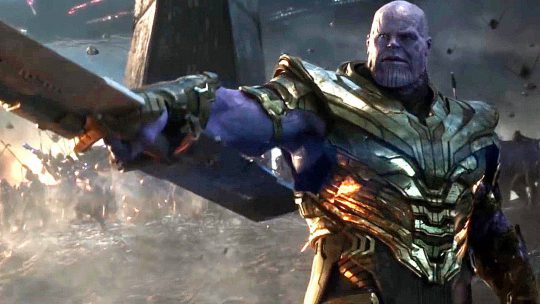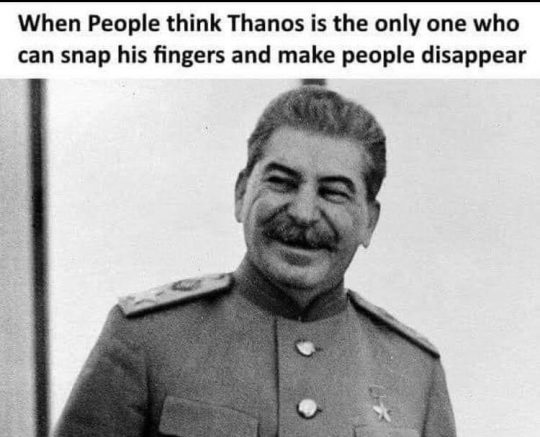After the second weekend of release, the directors of Avengers: Endgame have declared that spoilers are fair game, and so it is time to pick up where some previous reflections left off and explore the villain Thanos’ development from Infinity War to Endgame.
As I explored earlier, Thanos’ vision in Infinity War is neo-Malthusian: “His dogmatic adherence to the neo-Malthusian creed of limitation and extinction requires him to make a sacrifice, first of his own child and then of half of the entire cosmos.”
But in Endgame, Thanos learns that those left behind after the snap don’t greet him as a savior, someone who did the necessary dirty work and who should therefore be lauded. Instead, they continue to resist, even years later. So Thanos updates his manifesto. No more half-measures. His mercy in eradicating half the cosmos was a flaw. Instead, says Thanos, he must remake the entirety of the world from the beginning. Those who remember the way things were and cared for those who were lost, will never be able to welcome the new normal. So instead of getting rid of half of living beings, Thanos needs to use the Infinity Gauntlet to create an entirely new world and an entirely new world order along with it.

Just as the Thanos of Infinity War universalizes the neo-Malthusian vision, the Thanos of Endgame universalizes the revolutionary worldview. Here we can think of the “new humanity” promised by Rousseau and Marx, a humanity set free from the chains of the past and from the strictures of civilization. If Thanos of Infinity War is a kind of cosmic Paul Ehrlich, then the Thanos of Endgame is a kind of cosmic Stalin.
As Lester DeKoster puts it in Communism & Christian Faith, “It is quite inconceivable how a Marxist who lived before and through the revolution could enter the classless society. How could he, in reality, put on the ‘new man’ in lieu of the man who had been formed by all the tensions of class struggle? And if he brought into the new society any of the vestiges of the old, they could become germs from which evil might once more develop.”
This is the truth that the Mad Titan realizes in Endgame and commits himself to being the midwife of an entirely new world, in which all vestiges of the old, its people, its history, its memories, have been eradicated. At least Thanos skips over other half measures, like gulags and reeducation camps. And, alas, what is old is now new again.


